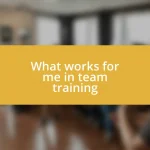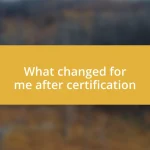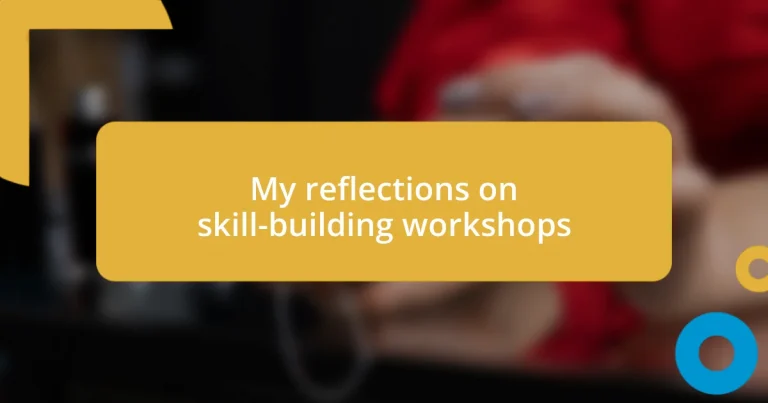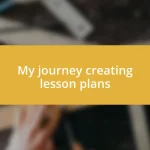Key takeaways:
- Skill-building workshops enhance personal and professional development through hands-on activities, networking, and creating a safe environment for experimentation.
- Effective workshops have clear objectives, engage participants actively, and provide feedback mechanisms to enhance the learning experience.
- Post-workshop practices like regular review, sharing knowledge, and applying skills through projects are essential for retention and practical application of learning.
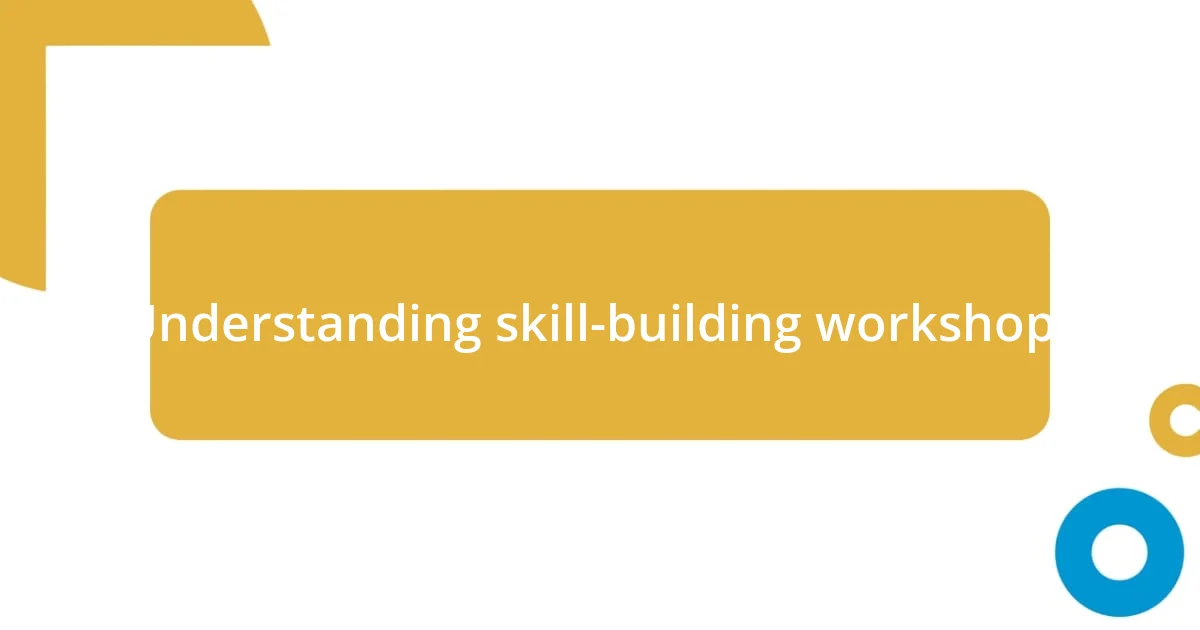
Understanding skill-building workshops
Skill-building workshops are structured experiences designed to teach or enhance specific abilities, whether they are technical skills like coding or soft skills such as communication. I still remember attending a workshop on public speaking. It was nerve-wracking at first, but the supportive environment turned my anxiety into excitement. Have you ever felt that rush when you finally grasp a concept that seemed so elusive? That moment of clarity is powerful and can transform your perception of learning.
These workshops typically involve hands-on activities, providing participants with practical experience rather than just theory. I once participated in a creative writing workshop where we were tasked with crafting a short story in just one hour. I was amazed by how much I could produce under the pressure. The sense of accomplishment when sharing my work was palpable—have you experienced that satisfying thrill of sharing a piece of yourself with others?
Understanding the dynamics in these settings can be eye-opening. They often bring together diverse groups who share a common goal. I’ve learned so much from others’ perspectives in these workshops. It begs the question: what can we learn from stepping outside our comfort zones and interacting with people from different backgrounds? The insights gained go beyond skill acquisition; they deepen our understanding of collaboration and creativity.
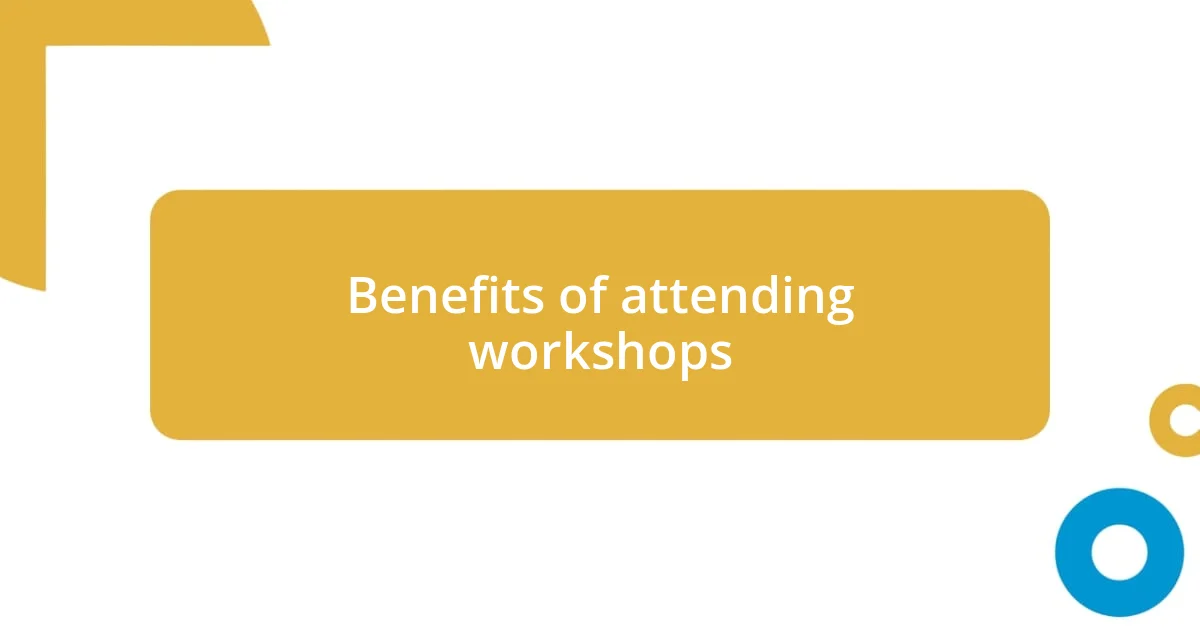
Benefits of attending workshops
Attending workshops has numerous benefits that can greatly influence personal and professional development. For example, I once joined a digital marketing workshop that completely reshaped my understanding of branding. The practical exercises and real-life case studies provided me with incredible tools to apply immediately. Have you noticed how experiences like that can shift your perspective and open new doors?
Another major advantage is networking. In my experience, building relationships during these workshops has led to collaborations I never anticipated. I met a fellow attendee at a photography workshop who later became my partner for a freelance project. Can you imagine how invaluable those connections would be in advancing your career? It’s fascinating how shared interests can create lasting partnerships.
Lastly, workshops foster a safe space for experimentation. I recall attending a coding workshop where I felt encouraged to make mistakes. That environment boosted my confidence significantly. Knowing that everyone else was on a similar journey helped me embrace vulnerability. Have you ever had an experience where the fear of failing was replaced by the excitement of trying something new?
| Benefit | Description |
|---|---|
| Skill Enhancement | Hands-on activities boost practical knowledge. |
| Networking Opportunities | Connections made can lead to professional collaborations. |
| Safe Learning Environment | Encourages risk-taking and experimentation without fear of judgment. |
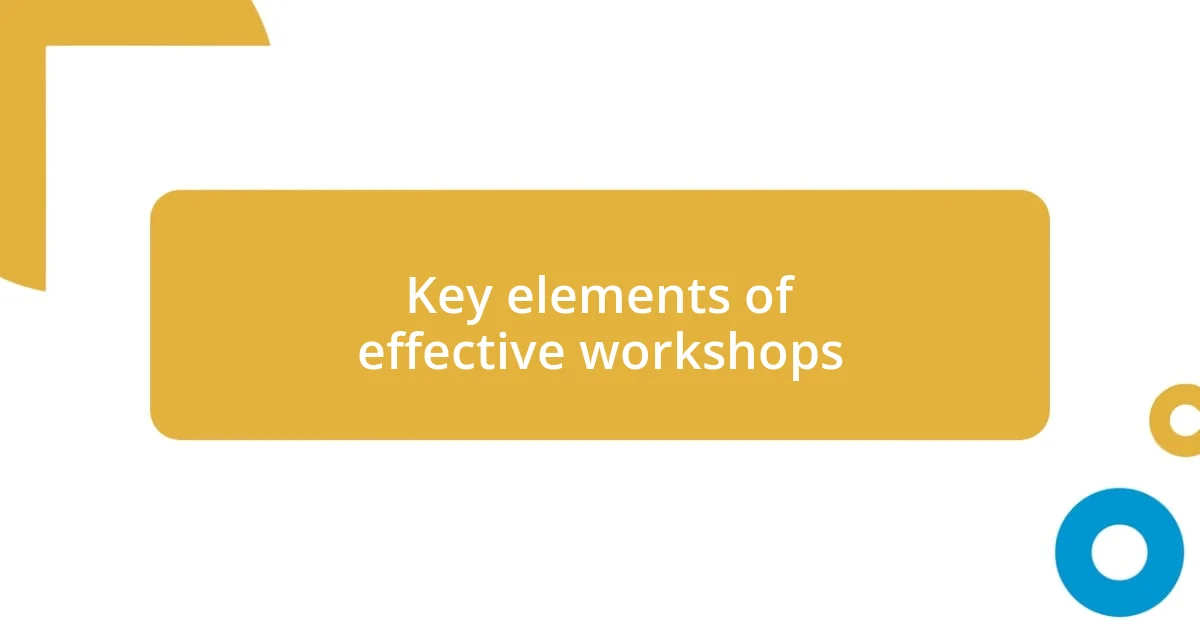
Key elements of effective workshops
Effective workshops share several key elements that significantly enhance the learning experience. For instance, I’ve found that clear objectives are vital; they guide participants and ensure everyone is aligned. In one workshop I attended, the facilitator outlined specific goals at the outset. This simple act transformed our focus and made the entire session feel more purposeful. Isn’t it amazing how a little clarity can make such a big difference?
Another aspect I deem essential is participant engagement. When attendees are actively involved, the learning experience becomes richer. I recall a workshop where we broke into small groups for brainstorming exercises. The energy in the room was contagious, and our discussion led to innovative ideas that surprised even the facilitator. Engaging activities foster a sense of community and spark creativity. Here’s a recap of essential elements:
- Clear Objectives: Ensure everyone knows the goals and outcomes from the beginning.
- Active Participation: Incorporate activities that compel participants to get involved.
- Feedback Mechanisms: Create opportunities for attendees to share their experiences and receive constructive feedback.
- Expert Facilitation: Skilled facilitators can adapt to the group’s needs, enhancing the overall flow.
- Follow-Up Resources: Providing additional materials post-workshop can reinforce learning and support implementation.
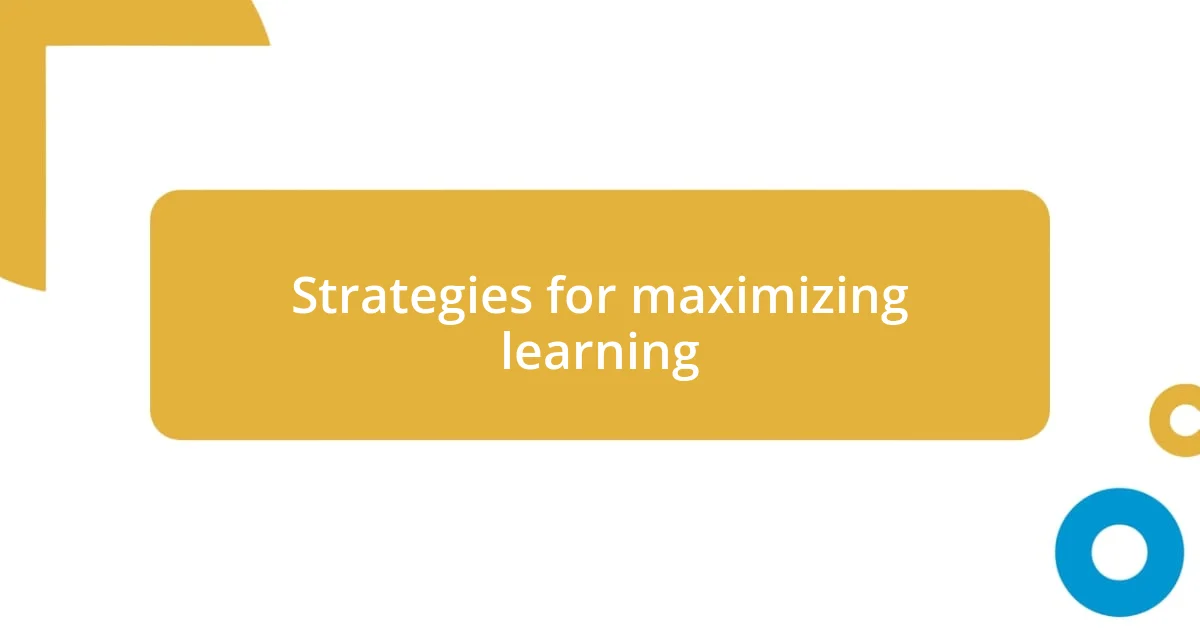
Strategies for maximizing learning
Maximizing learning in skill-building workshops often comes down to effective preparation. I’ve learned that reviewing the workshop materials beforehand can set a solid foundation for understanding. When I dedicated some time to skim through the prep notes for a leadership workshop, it really paid off. Do you know that feeling when you walk into a room, already familiar with the concepts being discussed? It’s empowering!
Another strategy is to practice active listening. I remember a particularly engaging workshop on public speaking, where I made a concerted effort to absorb every word from the presenter. This was not just about hearing; it required me to engage mentally and emotionally with the content. Have you ever noticed how much more you absorb when you truly focus? It’s almost like the information seeps into your subconscious.
Finally, taking time to reflect on your learning is crucial. After a recent workshop on graphic design, I spent a few minutes jotting down key takeaways and how I could implement them in my projects. This reflection helped solidify the knowledge and prompted new ideas. Why do we often rush out of workshops without pausing to consider what we’ve learned? By carving out that time, we can bridge the gap between theory and practice, making the learning experience far more impactful.
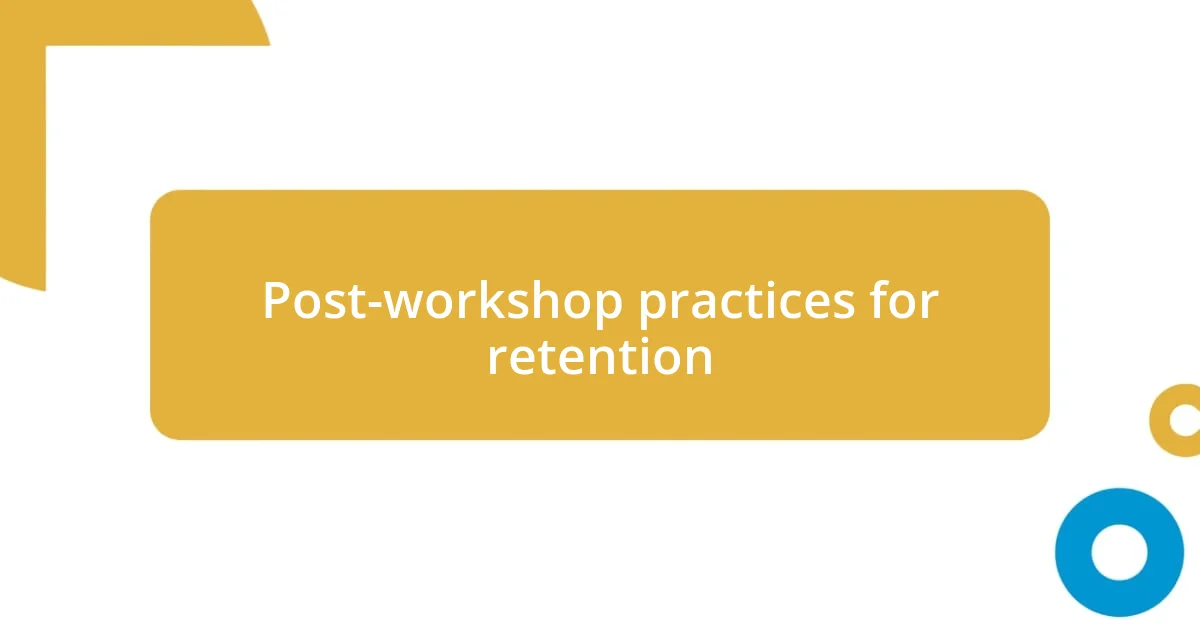
Post-workshop practices for retention
Engaging in post-workshop practices has been a game changer for me. One approach I’ve found incredibly effective is setting aside dedicated time each week for review. I’ll often pull out my notes and try to revisit the exercise we did on brainstorming. That moment of reflection reminds me of the excitement I felt during the workshop, which reignites my passion for applying what I learned. Can you recall a specific insight from a workshop that you felt compelled to implement?
I also love sharing knowledge with peers after attending a workshop. Organizing a casual meetup where I share highlights and insights has turned into a fantastic way to reinforce my own learning. Last month, after a workshop on conflict resolution, I gathered a few colleagues for coffee and discussed the techniques we learned. The enthusiastic exchange of ideas created a deeper understanding of those skills. Isn’t it fascinating how teaching others can solidify your grasp on a subject?
Finally, I make it a point to integrate the skills into small projects or daily routines. For instance, after a workshop on time management, I started using the Pomodoro Technique for my tasks. Initially, it felt challenging to adjust, but gradually, I noticed my productivity soar. Have you experienced a transformation by putting new skills to the test? Taking that first step is often the most daunting, yet it’s the key to turning workshop theories into tangible results.






